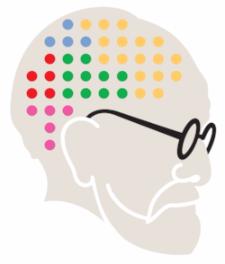Creativity in the Science of Psychoanalysis
-
December 10, 2019
8:00 pm - 10:00 pm
The 1040th Scientific Program Meeting: Jointly sponsored by NYPSI, PANY, and APM
“Creativity in the Science of Psychoanalysis”
Tuesday, December 10, 2019
8:00 – 10:00 pm
A reception will precede the lecture from 7:15 – 8:00 pm. All are welcome.
Moderator: Christine Anzieu-Premmereur, M.D.
Panelists: Eric R. Marcus, M.D. (APM), Marina Mirkin, M.D. (PANY), Theodore Shapiro, M.D. (NYPSI)
2 CME/CE credits offered.
Educational Objectives: Upon completion of this activity, participants should be able to:
- Use the transformative role of the psychoanalytic setting as a creative integrative opportunity to facilitate treatment in the therapeutic action of psychoanalysis
- Describe the transformative role of creativity in the therapeutic action of psychoanalysis.
- Assess the progress of a treatment through the development of the patient’s creative capacity
Psychologists

